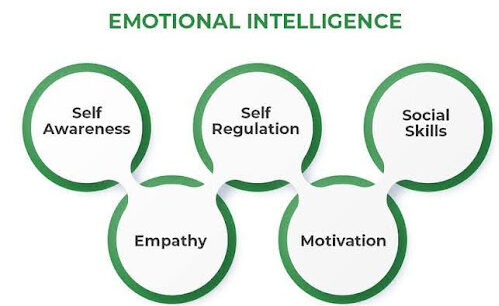Introduction

Emotional intelligence (EI) is the ability to recognize, understand, and manage our emotions and the emotions of others. In today’s fast-paced world, technology can be a valuable tool in enhancing emotional intelligence. Here’s how to leverage various technological resources to develop and strengthen your emotional skills.
1. Online Courses and Workshops
Educational Platforms
Numerous online platforms offer courses focused on emotional intelligence, empathy, and interpersonal skills. Websites like Coursera, Udemy, and LinkedIn Learning provide accessible content from experts.
Benefits:
Structured Learning: Courses offer structured content to build foundational knowledge.
Flexible Scheduling: Learn at your own pace, making it easier to fit into your schedule.
2. Emotional Intelligence Apps
Mobile Applications
Several apps are designed specifically to help users develop emotional intelligence. Apps like Moodfit and Youper offer tools for tracking emotions, understanding triggers, and practicing mindfulness.
Benefits:
Self-Reflection: Regular tracking helps users recognize patterns in their emotions and responses.
Mindfulness Practices: Many apps include exercises to improve emotional regulation and awareness.
3. Social Media and Online Communities
Supportive Networks
Social media platforms and online forums provide opportunities for individuals to engage with diverse perspectives, fostering empathy and understanding. Communities on Reddit, Facebook, and dedicated EI forums can facilitate discussions on emotional experiences.
Benefits:
Broaden Perspectives: Engaging with diverse groups helps cultivate empathy and understanding of different emotional experiences.
Real-Life Examples: Learning from others’ experiences can enhance your emotional vocabulary and responses.

4. Virtual Reality (VR) Experiences
Immersive Learning
Emerging VR technologies offer immersive experiences that can simulate emotional situations, allowing users to practice their emotional responses in safe environments.
Benefits:
Empathy Building: VR can create scenarios that require understanding others’ feelings, enhancing empathy.
Safe Practice: Users can experiment with their emotional reactions without real-world consequences.

5. Emotional Journaling Software
Reflective Practices
Using digital journaling tools like Day One or Journey can facilitate regular self-reflection on emotions and experiences.
Benefits:
Consistent reflection: Journaling helps identify emotional patterns and triggers over time.
Goal Setting: Users can set personal emotional development goals and track progress.
6. Communication Tools
Enhancing Interpersonal Skills
Tools like Zoom, Slack, and Microsoft Teams can improve communication skills by enabling virtual meetings and discussions. Practicing effective communication through these platforms can enhance emotional awareness.
Benefits:
Non-Verbal Cues: Practicing virtual communication can help users become more aware of tone and body language.
Feedback Opportunities: Engaging in discussions allows for real-time feedback and adjustment of communication styles.

7. Mindfulness and Meditation Apps
Emotional Regulation
Apps like Headspace and Calm offer guided meditations focused on emotional awareness and regulation. These resources can help improve focus and emotional resilience.
Benefits:
Stress Reduction: Regular mindfulness practice reduces stress, improving emotional regulation.
Enhanced Awareness: Meditation promotes greater awareness of one’s emotions and reactions.
8. Feedback and Self-Assessment Tools
Continuous Improvement
Online self-assessment tools and feedback surveys can help individuals gauge their emotional intelligence levels and identify areas for improvement.
Benefits:
Self-Awareness: Regular assessments provide insights into personal emotional strengths and weaknesses.
Actionable Insights: Feedback helps individuals create targeted plans for development.
Conclusion
Technology offers numerous avenues for enhancing emotional intelligence, from online courses and apps to VR experiences and journaling tools. By actively engaging with these resources, individuals can cultivate a deeper understanding of their emotions and improve their interpersonal skills. Embracing technology as a partner in emotional growth can lead to healthier relationships and a more fulfilling life.

